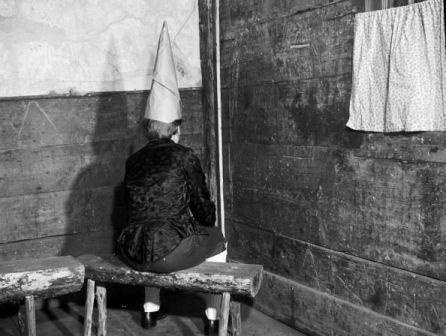In the U.S., it’s commonly believed that philosophy is too complex for high school students.
But in the history of the West, that’s actually a fairly recent notion, and not one universally held.
In ancient Greece, the specialized study of philosophy at a school like the famed Platonic Academy would not begin until about the age of 18. However, students in secondary school would learn logic and undertake a detailed study of poets like Homer and Hesiod with heavy philosophical tendencies in their works.
In the Middle Ages, students at Oxford would enter at the age of 14 or 15 and would begin a course of studies in the trivium – grammar, rhetoric, and dialectic – the latter of which included philosophy and, according to Robert Rait, “was the real interest of the medieval student.”
In colonial America, teaching philosophy to teenagers was par for the course. In the 17th and 18th centuries, the average first-year student at Ivy League colleges was fifteen years-old. During his 3-4 years at school he would have had a steady diet of Greek and Roman philosophers.
Even at the end of the nineteenth century, one can still find evidence of philosophy being taught in public schools at the high school level. In Intellectual Takeout’s home state of Minnesota, students taking the 1893 high school board exams had to answer questions on Kant, utilitarianism, and virtue ethics.

Today, there are still places that teach philosophy to high schoolers. One can find it in America in select private schools. And it’s part of the secondary school curriculum in European countries such as France, Germany, and Spain, and in many parts of Asia and Africa.
In a popular 2012 Huffington Post article, Michael Shammas claimed that teaching philosophy in American high schools would make for “a better society.” He argued that it would help inculcate skills becoming more scarce in modern American culture, the foremost of which is being able to carry on a rational dialogue without getting angry.
Having taught at the high school level, I am confident that many of my bright students would have been more than capable of beginning philosophy studies. Are we holding American students back by not teaching them philosophy in high school?
















Leave a Comment
Your email address will not be published. Required fields are marked with *